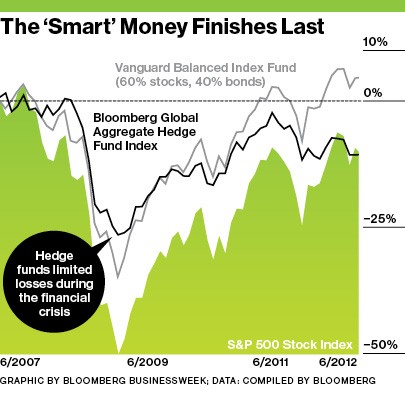What is a Hedge Fund
Post on: 16 Апрель, 2015 No Comment

The term hedge fund is used often in the financial press. I suspect, however, that many investors do not really know what a hedge fund is.
Investopedia defines a hedge fund as follows:
“An aggressively managed portfolio of investments that uses advanced investment strategies such as leveraged, long, short and derivative positions in both domestic and international markets with the goal of generating high returns (either in an absolute sense or over a specified market benchmark).”
Here are a few basics about hedge funds to help you understand them. Note this is certainly not meant to be an in-depth tutorial but rather is meant to provide an introduction to hedge funds.
Who can invest in hedge funds?
In order to invest in a hedge fund you must be an accredited investor. The current definition of an accredited investor is someone with a net worth of $1 million (excluding the equity in their home) and at least $200,000 in income ($300,000 with a spouse) over the past two years. Many hedge fund investors are institutional investors such as foundations, endowments and pension plans. About 65 percent of the capital invested in hedge funds comes from institutional investors.
What is the minimum investment?
The minimum required to invest is often $1 million or more though some smaller hedge funds and funds of funds may have lower minimums. New companies like Sliced Investing are seeking to change these high minimums by allowing investors to invest as little as $20,000.
Do I have access to my money?
Unlike mutual funds, ETFs, closed-end funds and individual stocks hedge funds typically do not offer daily access to your money.
Some hedge funds allow investors to subscribe (invest) or redeem their money monthly, for others this might be quarterly or based upon some other time period. Most hedge funds will require advanced notice for redemptions which might be as long as 180 days. This allows the fund managers time to raise sufficient cash and allows for an orderly sale of fund investments especially if the redemption is a significant amount.
Some hedge funds also require a lock-up which means that there are no redemptions allowed during this initial period. A typical lock-up period is one year, though some are as long as two years. In some cases the lock-up period is “soft” meaning that redemption can be made but there will often be a penalty ranging from 2 percent to as high as 10 percent.
Some hedge funds may also have the ability to enforce “gates” on redemptions which means they can decide to process only a portion of the redemptions requested. This provision came into focus during the 2008-2009 market downturn as hedge fund redemptions requests swelled as many investors sought to raise cash.
What types of fees are charged?
The fees charged by hedge funds vary widely.
Many hedge funds charge a management fee of 2 percent or more.
There might also be incentive fees of 10 to 20 percent of the fund’s profits or more. This rewards the fund manager for superior performance. The flip side of this is that the manager generally only collects an incentive fee if the fund’s performance exceeds its former highs, known as a high water mark.
If a fund loses 5 percent in a given year, no incentive fees will be paid to the manager the following year until the 5 percent loss is made up.
The term two and 20 is a common one in the hedge fund world meaning that the fund would charge a 2 percent management fee and a 20 percent incentive fee. This may seem pricey but if the performance is stellar then investors won’t mind paying it.
What types of investment strategies are available?
There is a vast range of investment strategies across the hedge fund landscape. These might include long-short, global macro, market neutral, convertible arbitrage, distressed securities and many others. Additionally there are a number of fund of funds offered which means that the fund offers a collection of strategies and fund managers under one umbrella.
What should I consider before investing in a hedge fund?
From reading the above you might ask yourself why would I invest in hedge funds? Let’s remember that hedge funds are considered alternative investments. Ideally they will have a relatively low correlation to the traditional long-only equity and fixed income investments in your portfolio. At their best well-managed hedge funds can add balance and reduce the overall risk of your portfolio, in some cases the strategies are designed to provide absolute returns across all investing environments.
Before investing in a hedge fund or any alternative investment make sure you have considered and fully understand the following:
- The fund’s investment strategy.
- How this investment strategy fits with your overall portfolio and investing strategy.
- What the fund “brings to the table” that you can’t get with more traditional long-only stock and bond investments.
- Who is managing the fund and their history and investment track record.
- The required minimum investment.
- Any redemption restrictions and/or lock-up periods. Make sure that you won’t need to tap this money during this time period.
The Bottom Line
Like any investment option you might consider it is important to understand the pros and cons of hedge funds in general and any specific fund or strategy that you might be considering for your portfolio.
Disclosure: This blog post was written for Sliced Investing pursuant to a paid content arrangement I have with the company’s representatives as part of an effort to raise awareness about alternative investment options. All views expressed are entirely my own, and were not influenced or directed by Sliced Investing.
Photo courtesy of Wikipedia














